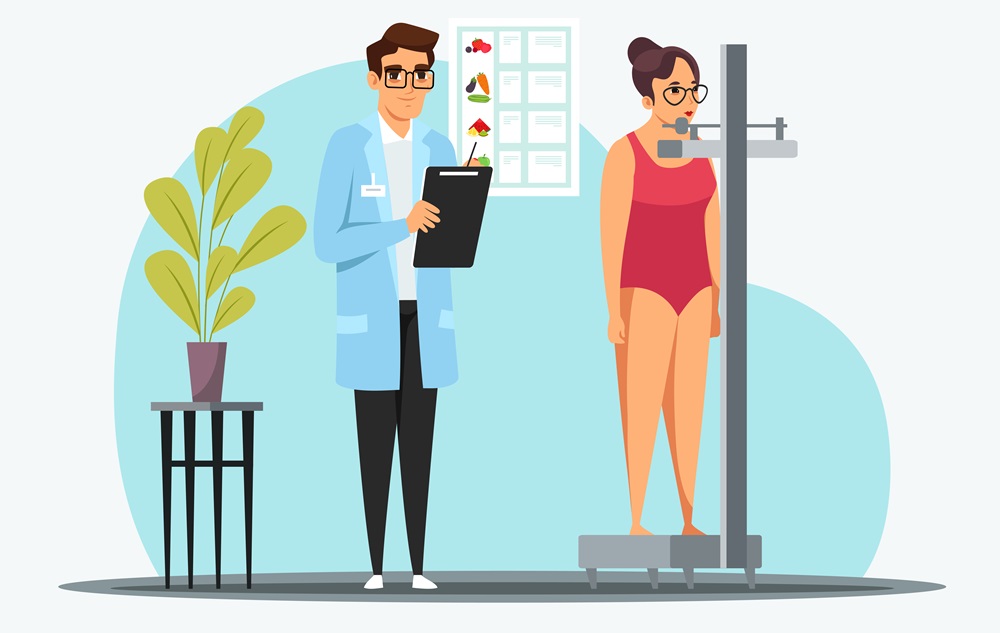Losing weight is one of the most common health goals, but it’s also one of the most challenging.
For many, traditional methods like dieting and exercise aren’t enough to achieve lasting results.
If you’ve tried everything and still feel stuck, it might be time to consider a medical weight loss program.
These programs, supervised by healthcare professionals, offer personalized strategies to help you shed pounds safely and effectively.
But how do you know when it’s the right time to seek help? Let’s dive into the signs that indicate a medical weight loss program could be your best next step.
What Is a Medical Weight Loss Program?
A medical weight loss program is a structured plan designed and supervised by healthcare providers, such as doctors, dietitians, or endocrinologists.
Unlike fad diets or over-the-counter solutions, these programs are tailored to your unique needs, addressing underlying health issues like hormonal imbalances, metabolic disorders, or psychological factors that contribute to weight gain.
Signs It’s Time to Consider a Medical Weight Loss Program
1. You’ve Tried Everything and Nothing Works
Have you been on countless diets, joined gyms, and tried every weight-loss trend, only to see minimal or temporary results? You’re not alone. Many people struggle with stubborn weight that just won’t budge, despite their best efforts. This could be a sign that your body needs a more targeted approach.
Fact: According to the National Institutes of Health (NIH), only about 20% of people who lose weight successfully maintain it long-term. A medical weight loss program can help you break through plateaus by addressing the root causes of your weight struggles.
2. You Have a Health Condition Linked to Weight
Carrying excess weight isn’t just about appearance—it can seriously impact your health. Conditions like type 2 diabetes, high blood pressure, sleep apnea, or heart disease are often linked to obesity. If you’ve been diagnosed with one of these conditions, a medical weight loss program can be a game-changer.
Why it matters: Losing even a small amount of weight can significantly improve these conditions. For example, losing just 5-10% of your body weight can reduce blood pressure, improve blood sugar levels, and lower your risk of heart disease.
3. Your Weight Is Affecting Your Mental Health
Weight struggles can take a toll on your mental well-being. If you’re feeling anxious, depressed, or constantly stressed about your weight, it’s time to seek help. A medical weight loss program not only focuses on physical health but also provides emotional support through counseling and therapy.
Did you know? A study published in the Journal of Obesity found that individuals who participated in a medically supervised weight loss program reported significant improvements in their mental health and quality of life.
4. You’re Experiencing Unexplained Weight Gain
If you’re gaining weight despite eating well and staying active, there could be an underlying medical issue at play. Hormonal imbalances, thyroid disorders, or polycystic ovary syndrome (PCOS) are common culprits. A medical weight loss program can help identify and treat these conditions, making it easier for you to lose weight.
5. You’re Ready for a Long-Term Solution
Fad diets promise quick results, but they rarely lead to lasting change. If you’re serious about achieving and maintaining a healthy weight, a medical weight loss program offers a sustainable approach. These programs focus on education, lifestyle changes, and ongoing support to help you build habits that last a lifetime.
How Does a Medical Weight Loss Program Work?
Here’s a breakdown of what you can expect:
| Step | Description |
| Initial Assessment | A thorough evaluation of your health history, lifestyle, and weight-loss goals. |
| Personalized Plan | A customized plan that includes diet, exercise, and possibly medications. |
| Regular Monitoring | Frequent check-ins to track progress and adjust the plan as needed. |
| Behavioral Support | Counseling to address emotional eating and other psychological factors. |
| Maintenance Phase | Strategies to help you maintain your weight loss long-term. |
Why Choose a Medical Weight Loss Program Over DIY Methods?
While DIY weight-loss methods can work for some, they often lack the expertise and support needed for long-term success. Here’s why a medical weight loss program stands out:
- Expert Guidance: You’ll work with professionals who understand the science of weight loss.
- Accountability: Regular check-ins keep you motivated and on track.
- Safety: Medical supervision ensures that your weight-loss journey is safe and effective.

Real-Life Success Stories
Case Study 1: Sarah, a 35-year-old mother of two, struggled with postpartum weight gain. Despite her efforts, she couldn’t lose the extra pounds. After joining a medical weight loss program, she lost 40 pounds in six months and has kept it off for over a year.
Case Study 2: John, a 50-year-old with type 2 diabetes, was able to reduce his medication dosage after losing 20 pounds through a medical weight loss program. His blood sugar levels are now under control, and he feels more energetic than ever.
Is a Medical Weight Loss Program Right for You?
If any of the signs above resonate with you, it might be time to explore a medical weight loss program. Remember, seeking help isn’t a sign of weakness—it’s a step toward taking control of your health and well-being.
Take the first step today: Consult with a healthcare provider to discuss your options and find a program that fits your needs. Your journey to a healthier, happier you starts now.
Final Thoughts
Weight loss is a deeply personal journey, and there’s no one-size-fits-all solution.
If traditional methods haven’t worked for you, a medical weight loss program could be the key to unlocking your potential.
With professional guidance, personalized strategies, and ongoing support, you can achieve the results you’ve been dreaming of.


